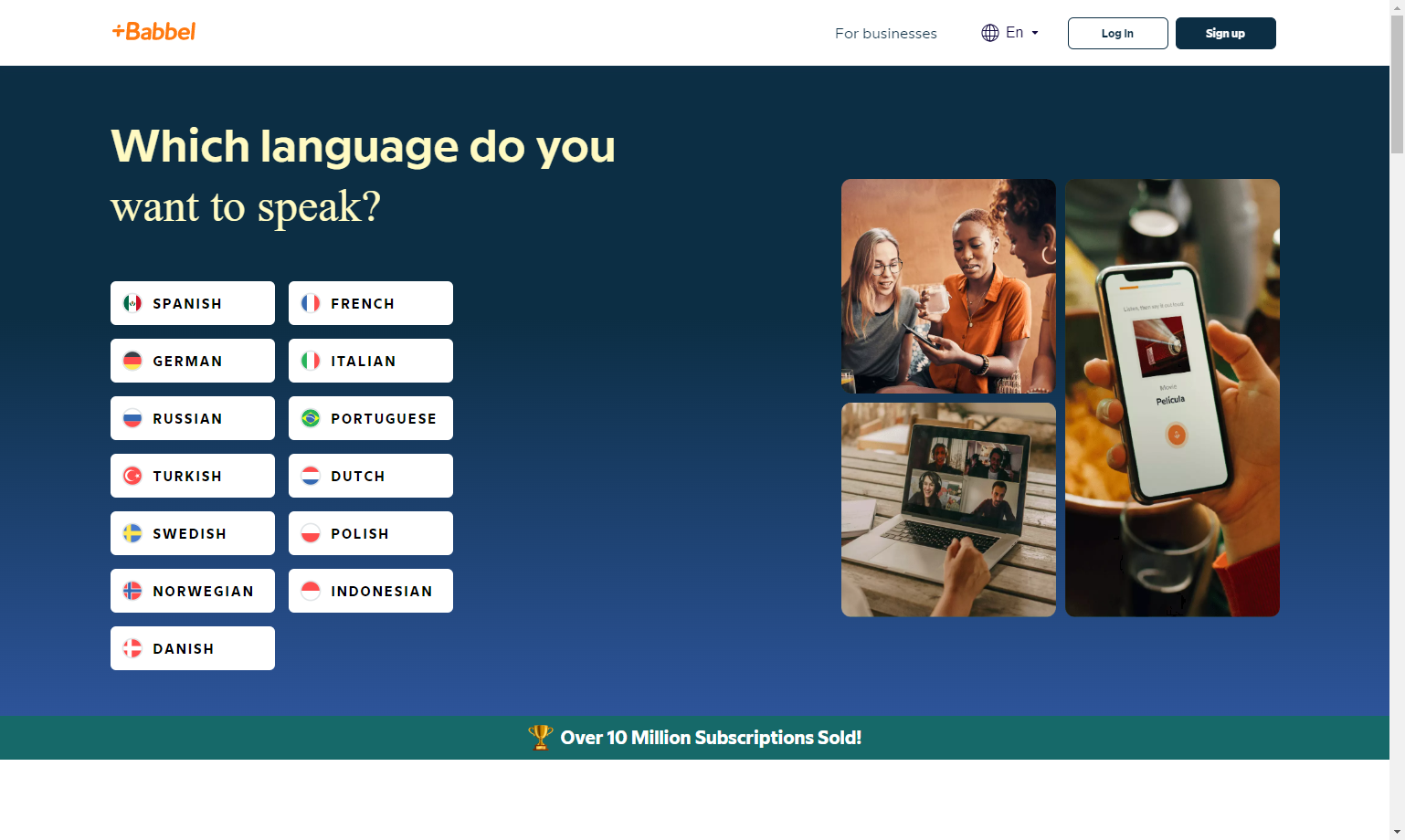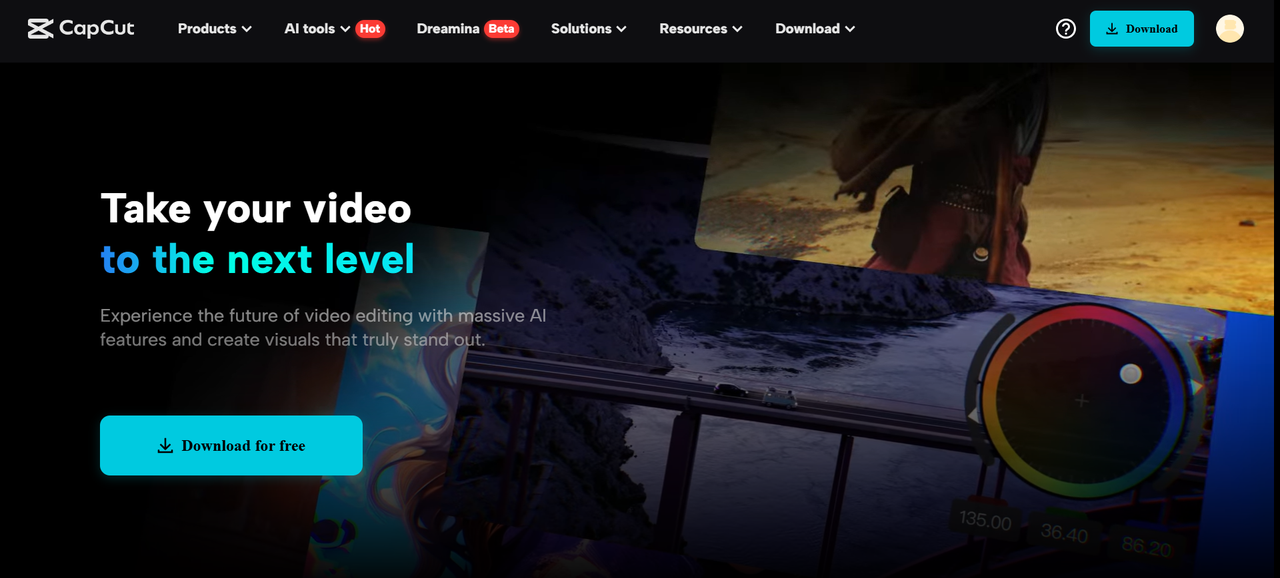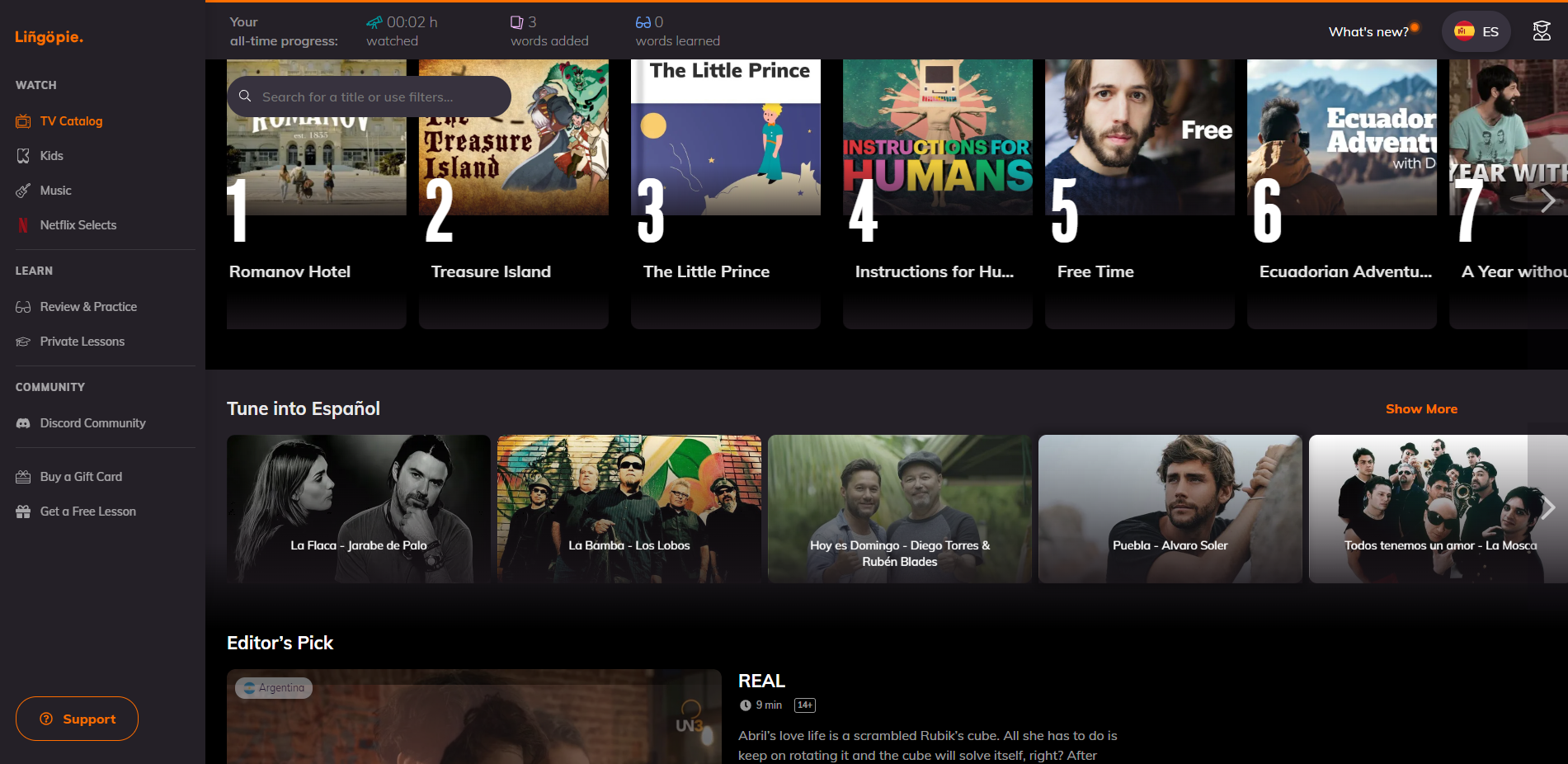Babbel languages
written by: Krystof-Sandor Harfst
Table of Content
Black Friday Deal on Babbel
Babbel is an online language learning platform that was launched in 2007. It is one of the most popular language learning platforms, with more than 10 million users worldwide. Babbel offers courses in 14 different languages, including Spanish, French, German, Italian, Portuguese, Swedish, Turkish, Dutch, Polish, Indonesian, Norwegian, Danish, Russian, and English.

Learning a new language is becoming increasingly important in today’s globalized world. Knowing multiple languages can open up new opportunities for work, travel, and personal growth. Babbel aims to make language learning accessible to everyone, regardless of their location or language proficiency.
Languages Taught on Babbel
Babbel offers courses in 14 different languages, with a focus on European and widely spoken languages. The languages taught on Babbel are Spanish, French, German, Italian, Portuguese, Swedish, Turkish, Dutch, Polish, Indonesian, Norwegian, Danish, Russian, and English.
Most popular languages on Babbel
The most popular languages on Babbel are Spanish, French, German, and Italian. These languages are widely spoken and are often studied for travel or work purposes. Babbel offers courses in these languages for all levels of proficiency, from beginner to advanced.
Languages that are less commonly taught on Babbel
Languages that are less commonly taught on Babbel include Indonesian, Norwegian, Danish, Russian, and Turkish. These languages may not be as widely spoken, but they offer unique opportunities for cultural exchange and business opportunities. Babbel’s courses in these languages provide an introduction to the language and culture for beginners.
Features of Babbel Language Courses
Babbel’s language courses are designed to be interactive and engaging, using a variety of tools to aid language learning. Babbel offers courses for beginners, intermediate, and advanced learners in each language. Each course includes grammar lessons, vocabulary practice, and exercises to improve pronunciation and listening comprehension.
Babbel’s speech recognition technology and how it aids learning for each language
Babbel’s speech recognition technology is one of its most unique features. The software analyzes the user’s pronunciation and provides instant feedback, helping them to improve their speaking skills. Babbel’s personalized learning experience allows users to set their own goals and track their progress as they learn. Users can also choose to focus on specific topics, such as business language or travel vocabulary.
Advantages of Learning Languages on Babbel
One of the main advantages of learning languages on Babbel is the convenient and flexible learning process. Users can access the platform from anywhere with an internet connection, and can learn at their own pace. Babbel’s courses are also affordable and accessible, making language learning accessible to a wider audience.
Affordable pricing and accessibility for each language
Babbel’s interactive and engaging learning experience is another advantage. The platform uses a variety of tools to engage learners and make the learning process enjoyable. Users can also learn from native speakers, improving their language skills and cultural knowledge.
Limitations of Learning Languages on Babbel
Lack of face-to-face interaction for each language
One of the main limitations of learning languages on Babbel is the lack of face-to-face interaction. Although Babbel offers speaking and listening exercises, it cannot replicate the benefits of speaking with a real person. This can be particularly challenging for language learners who want to improve their conversation skills.
Limited emphasis on practical language skills for each language
Another limitation of Babbel is its limited emphasis on practical language skills. While Babbel provides a solid foundation for language learning, it may not cover all the practical skills required for everyday communication. For example, Babbel's courses may not cover local slang or regional variations in language, which can be important for those planning to travel or work in a specific country.
Limited scope of the courses offered for each language
Finally, Babbel's courses have a limited scope, particularly for less commonly taught languages. While Babbel offers an introduction to these languages, users may need additional resources to achieve fluency or proficiency.
Babbel Success Stories for Each Language
Babbel has a large user base, and many users have shared their success stories with the platform. Babbel's website features testimonials from users who have achieved fluency or proficiency in a language. These success stories highlight the effectiveness of Babbel's language courses and the platform's ability to help users achieve their language learning goals.
In conclusion, Babbel is a popular and effective language learning platform that offers courses in 14 different languages. While Babbel has several advantages, such as its convenient and flexible learning process, interactive and engaging learning experience, and affordability, there are also some limitations to consider, such as the lack of face-to-face interaction and limited emphasis on practical language skills. However, Babbel has helped many users achieve their language learning goals, and we recommend it as a valuable tool for anyone interested in learning a new language.
Hope that information helps!
Share this article!






